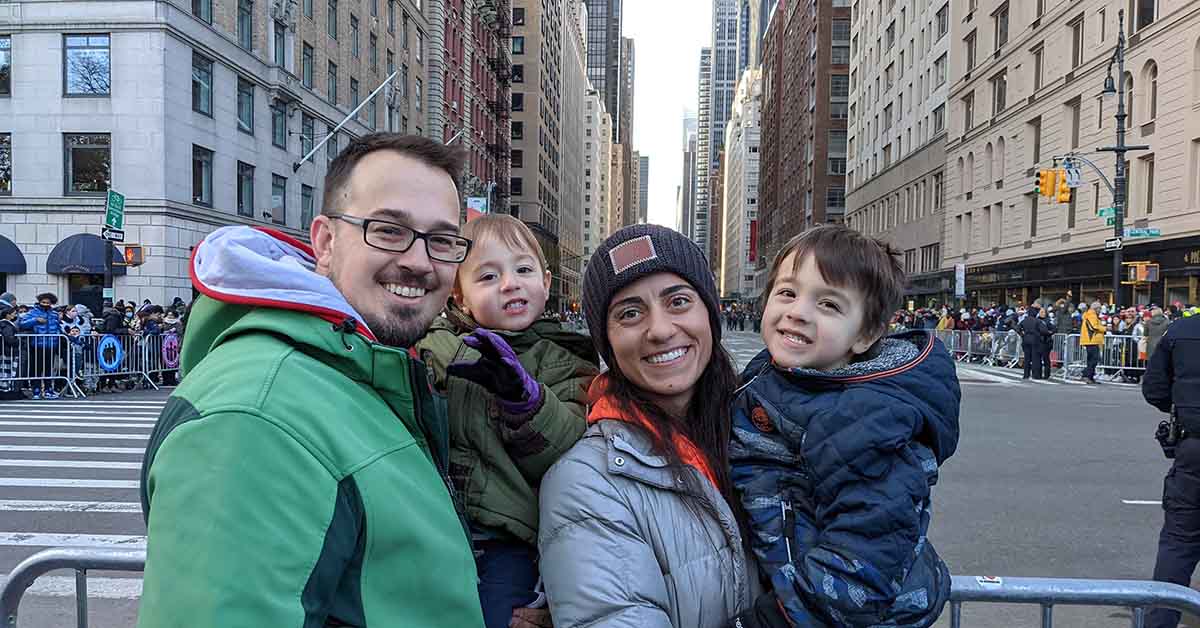
After nearly a decade of his wife bugging him to do something about his snoring, Michael Harper finally gave in and went to a sleep medicine clinic.
There, he learned he had a deviated septum, enlarged tonsils, and extreme sleep apnea. How extreme? Off the charts. But Michael wasn’t experiencing daytime symptoms of tiredness beyond what he felt he could blame on waking up to take care of his young children in the middle of the night.
“I wasn't having daytime issues with my snoring. It was just my wife who was suffering,” Michael says.
Extremely severe sleep apnea
During a sleep study, Michael scored an 84 on the apnea-hypopnea index (AHI). That means, on average, Michael stopped breathing 84 times per hour. Doctors consider 25 or more apneas per hour to be severe.
Upon learning that, Michael became concerned about sleep apnea’s long-term effects on his health. Without treatment, sleep apnea can lead to health risks like that include heart disease, high blood pressure, fatigue and weight gain.
Michael started CPAP therapy for his sleep apnea, but as a physician, he wondered whether surgery was an option.
Initial nasal examination
Michael asked to be referred to Dr. David Gossman, a board-certified otolaryngologist with BayCare Clinic Ear, Nose and Throat in Green Bay. During his initial visit, Gossman did a nasal endoscopy to get a closer look at Michael’s nasal airway.
On top of the issues the sleep clinic had identified, Gossman found a nasal polyp. While typically harmless, these painless growths can be associated with sinus disease or nasal blockage. Gossman ordered a CT scan to learn more about the polyp and asked Michael to continue using his CPAP to see how that went before they made any decisions about surgery.
Surgery is an option
Michael quickly realized he hated his CPAP. He wanted to talk with Gossman about surgical options.
“He sat right next to me and went through the CT scan with me and showed me, frame by frame, what he was seeing with my deviated septum and the nasal polyp, and how they were obstructing my sinuses,” Michael says.
Because there were so many anatomical issues within Michael’s nose and throat, Gossman agreed surgery could help Michael on several levels.
“We felt pretty confident that if we could fix those problems, eliminate those obstacles to air flow, that we would see significant improvement in his sleep apnea,” Gossman said.
They scheduled an endoscopic sinus surgery with septoplasty and uvulopalatophyaryngoplasty. Simply put, that’s one surgery to fix three issues: remove the nasal polyp, straighten Michael’s septum, and remove his tonsils plus part of his uvula.
Unexpectedly remarkable results
With Michael’s extremely high AHI score of 84, Gossman hoped the surgery would lower his AHI score into the 30s, which is still considered severe sleep apnea. But a post-op sleep study showed Michael’s AHI score dropped to four.
“We hit it just perfectly,” Gossman says. “The main drivers of his sleep apnea were things that we could fix surgically. We did a good job with it, and the result was amazing.”
Michael is no longer using a CPAP machine, which neither he nor Gossman expected would be an outcome, and he can breathe much better through his nose.
“I’m no longer snoring either, so my wife is very satisfied with that,” Michael says, chuckling. “And I’m very satisfied that I no longer have to wear my CPAP.”
Sleep apnea is a significant medical problem
Surgery may not be the answer for everyone with sleep apnea, nor is it guaranteed that anyone who chooses surgery to treat sleep apnea will get the same result Michael did. Gossman still encourages anyone diagnosed with sleep apnea to see an ear, nose and throat doctor for further evaluation.
“Snoring could be more than snoring and sleep apnea is a significant medical problem,” Gossman says. “This is a guy who really didn’t have symptoms and it turns out he had severe obstructive sleep apnea.”